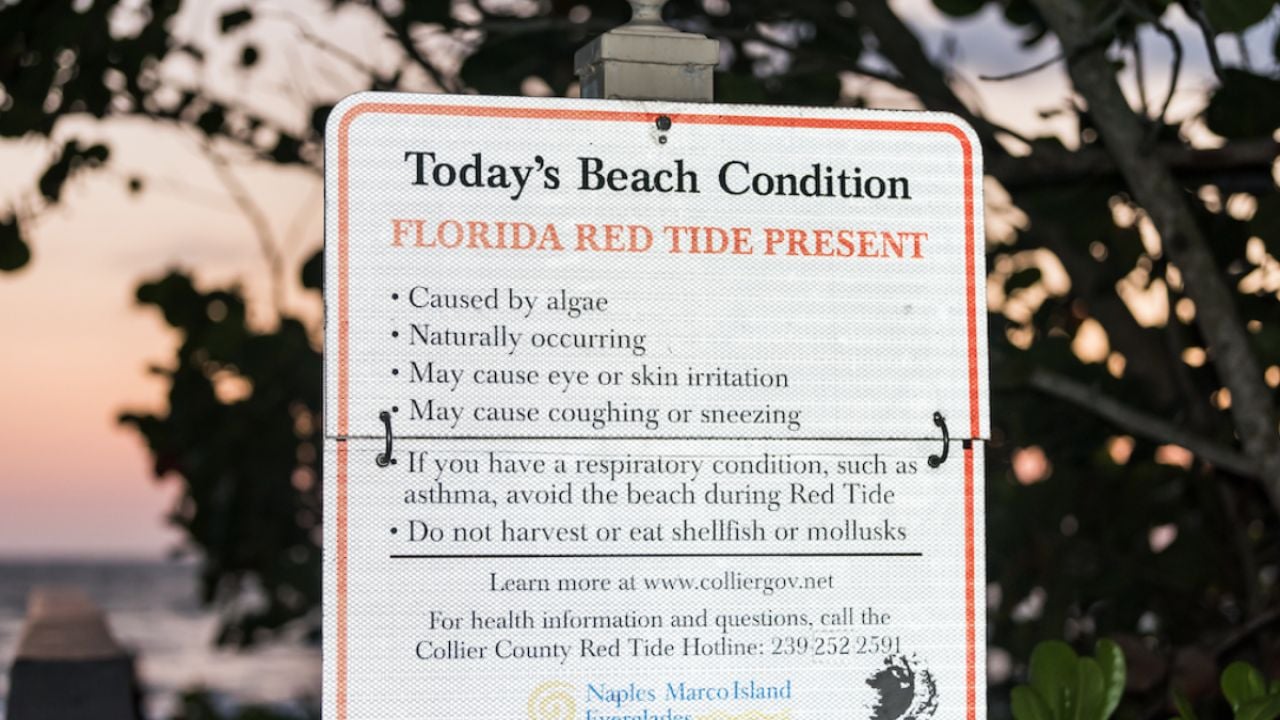
Hurricane Michael is rapidly advancing toward Florida, raising concerns that the storm could worsen and spread the red tide that is plaguing a 145-mile stretch of the state’s Gulf Coast. Although scientists speculate what impact Michael will have on the red tide, there is no question that this year will go down as one of the worst for outbreaks of potentially toxic algae in the Sunshine State.
Red tide is just one type of algae outbreak that is increasingly erupting in waterways across the nation. Many red tides produce toxic chemicals that can be hazardous to people and animals. The red tide that has ravaged Florida’s Gulf Coast this year has killed thousands of fish and other marine animals, shuttered beaches and wreaked havoc on small businesses and local economies.
Red tides occur naturally in Florida’s waters, but the current outbreak is being made worse by an eruption of blue-green algae in Lake Okeechobee. The outbreak was triggered by chemical runoff from farm fertilizers as well as from municipal sources, and is feeding the microscopic organisms that make up the red tide.
This year’s red tide is one of the worst in history. Simple conservation measures on farms – like planting cover crops, applying nutrients more efficiently or planting buffers of grass or trees along waterways – can significantly reduce runoff that feeds algae blooms. Yet according to EWG’s analysis of conservation spending, too little federal funding is going to the most effective conservation practices, and too much is going to the least effective practices.
In response to the growing threat, a bipartisan group of members of Florida’s congressional delegation, led by Rep. Kathy Castor, recently sent a letter to the conference committee negotiating the federal farm bill urging the inclusion of provisions to help tackle the epidemic of algae eruptions.
The letter points to specific provisions included in the House- and Senate-passed farm bills that seek to better target conservation spending, prioritize clean water investments within conservation programs and address obstacles that get in the way of improvements in water quality.
The letter highlights one provision in the Senate-passed farm bill that would allow states to provide additional cost-sharing to farmers through the Environmental Quality Incentives Program if they adopt practices that are effective at preventing farm pollution from contaminating sources of drinking water. Another provision would direct the agriculture department to ensure that a certain number of acres of vegetative buffers is planted along lakes, rivers and streams in watersheds impacted by algae eruptions.
In addition to Castor, the letter was signed by Reps. Stephanie Murphy, Ted Deutch, Frederica Wilson, Al Lawson, Alcee Hastings, Debbie Wasserman Schultz, Charlie Crist, Val Demings, Darren Soto and Lois Frankel, all Democrats, and Rep. Francis Rooney, a Republican.



